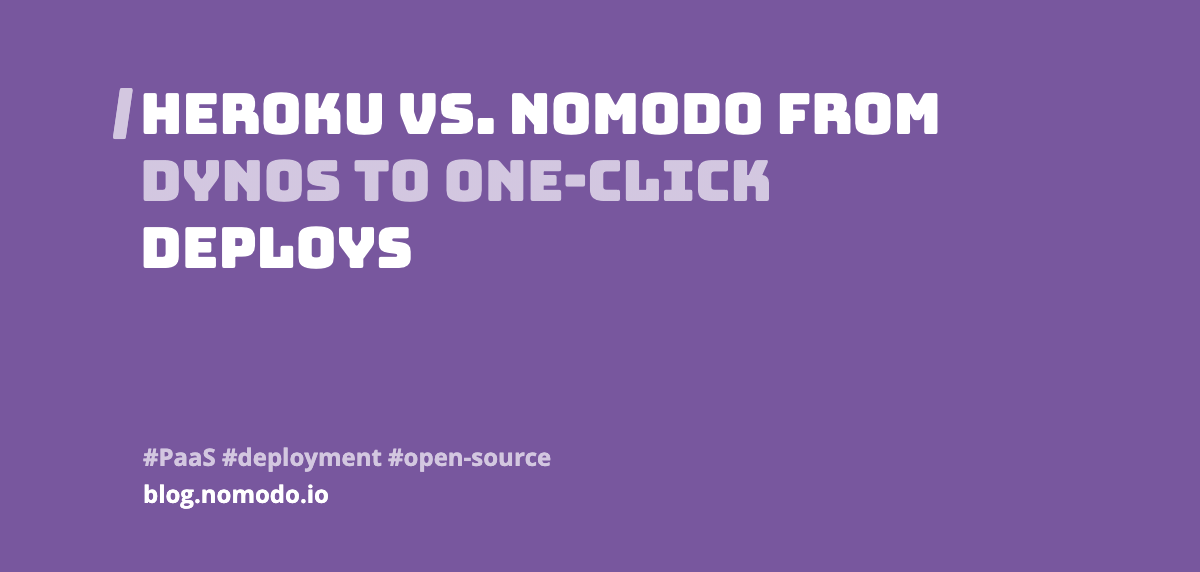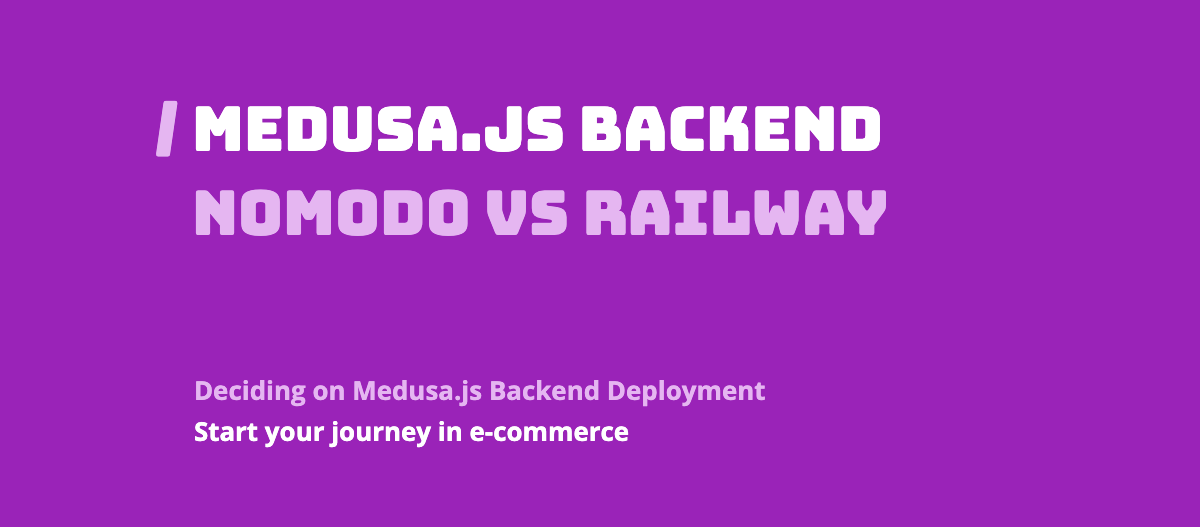Defang vs. Nomodo
Compare Defang’s cloud development platform with Nomodo.io’s one-click deployment solution. Streamline your cloud workflows and focus on what matters—your code.
Overview
Defang
Defang provides a cloud development platform that simplifies the deployment and debugging of cloud apps. It includes a CLI tool for quick project setup, efficient deployment using Docker Compose, and AI-assisted debugging. Defang supports many cloud providers and includes features such as prompt-to-app.
Nomodo.io
Nomodo is a developer-centric PaaS offering open-source applications as a managed service. Nomodo enables one-click deployments, eliminating the need for infrastructure, containerisation, or scaling knowledge. Preconfigured apps, like Medusa, Grav, PostgreSQL, and MongoDB, allow developers to focus entirely on their projects. Backups and support of multiple cloud providers are included.
Challenges with Defang vs.
Solutions with Nomodo
| Challenges developers face with Defang | How Nomodo Solves These Challenges |
|---|---|
|
🔥
Cloud Knowledge Requirement
While simplified, Defang still requires understanding of cloud concepts and Docker for optimal use.
|
💚
Zero Infrastructure Knowledge
Nomodo requires no cloud or infrastructure expertise, making it accessible to all developers.
|
|
🔥
Learning Curve
Developers need to familiarise themselves with Defang’s CLI and workflow, which may take time.
|
💚
Instant Setup and Simplicity
Developers can deploy applications in a single click without learning new tools or platforms.
|
|
🔥
AI Limitations in Depth
Defang’s AI tools assist with basic debugging and workflows but may struggle with deeper, complex use cases.
|
💚
Curated Application Selection
Nomodo offers a carefully curated set of open-source apps, ensuring functionality and eliminating guesswork.
|
|
🔥
Provider-Specific Features
Some features may vary depending on the chosen cloud provider, requiring additional learning.
|
💚
Consistent Experience
Nomodo delivers a uniform, reliable experience across all applications and infrastructure, reducing the learning curve.
|
Comparison of Features
| Feature | Nomodo | Defang |
|---|---|---|
| Type of Service | Open-source applications as managed services | Cloud development and deployment platform |
| Target Audience | Developers, small teams, and CTOs | Developers working on cloud applications and services |
| Required Expertise | Zero infrastructure knowledge required | Basic understanding of cloud concepts and Docker |
| Deployment Process | One-click deployment of pre-configured applications | One-click deploy or CLI-based deployment with Docker Compose |
| Infrastructure Control | Multi-cloud support across providers with no vendor lock-in | Supports multiple cloud providers (AWS, GCP, Azure) |
| Scaling | Fully automated scaling | Automated scaling with load balancer support |
| Learning Curve | Minimal, designed for quick adoption | Moderate, requires familiarity with cloud concepts |
Conclusion
Nomodo.io comes out as the best choice for developers that want quick deployment and no infrastructure complexity. Unlike Defang, which requires Docker knowledge and cloud competence, Nomodo allows for one-click launches of pre-configured apps such as Medusa and PostgreSQL, eliminating DevOps barriers completely. Its multi-cloud adaptability prevents vendor lock-in, while automated scaling and managed services enable seamless growth. Defang’s AI-assisted debugging and CLI tools are geared at cloud-savvy teams, but Nomodo's curated app ecosystem and unified experience prioritise simplicity, making it suitable for developers who prefer to focus just on coding. Nomodo.io provides unprecedented efficiency for streamlined operations and future-proof agility.
More comparisons




